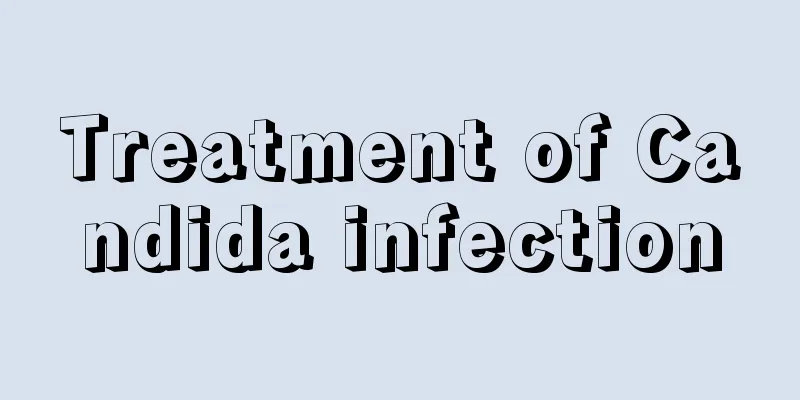What does a high thyroid index mean

|
Many people need to check their thyroid indicators during physical examinations or prenatal examinations. However, some friends found that their physical examination reports showed that their thyroid indicators were high. So, what does this data show? Today we invited an expert to introduce to you the diseases or potential dangers that may occur due to high thyroid indicators. I also hope that everyone can pay attention to this issue. Thyroid function tests done during physical examinations or before pregnancy generally include two parts: thyroid function and thyroid autoantibody tests. There are five indicators that reflect thyroid function: thyroxine (T4), triiodothyronine (T3), free thyroxine (FT4), free triiodothyronine (FT3), and thyroid stimulating hormone (TSH); There are three indicators that reflect thyroid autoantibody examination: anti-thyroglobulin antibodies (TGAb), anti-thyroid peroxidase antibodies (TPOAb) and thyrotropin receptor antibodies (TRAb). High thyroid antibody values generally refer to high values of anti-thyroglobulin antibodies and anti-thyroid peroxidase antibodies, which indicates that the patient's thyroid immune function is disordered and too many antibodies are mistakenly produced to fight against their own thyroid cells. Patients with high values of these two antibodies often suffer from Hashimoto's thyroiditis. What is Hashimoto's thyroiditis? Hashimoto's thyroiditis, also known as chronic lymphocytic thyroiditis, is an autoimmune thyroid disease, which means that the body produces a lot of antibodies against the thyroid gland, which attack thyroid cells and cause the disease. The characteristic manifestation of this disease is the increase of anti-thyroid peroxidase antibody (TPOAb) and anti-thyroglobulin antibody (TGAb) values. If the patient's two antibody values are high, he or she can basically be diagnosed with Hashimoto's thyroiditis. Among them, anti-peroxidase antibodies (TPOAb) are more specific and can better help diagnose Hashimoto's thyroiditis. The diagnosis is clearer if the patient also has elevated TSH (indicating hypothyroidism), or the doctor finds diffuse enlargement of the thyroid gland upon touch, or the thyroid ultrasound results describe "the thyroid gland as hypoechoic or unevenly echoed, with diffuse changes." What are the dangers of Hashimoto’s thyroiditis? Will it turn into thyroid cancer? If the thyroid function of patients with Hashimoto's thyroiditis is normal, it will have little impact on the body in the short term, but in the long run, it will cause certain damage to the patient's thyroid function. Because thyroid antibodies can damage the body's own thyroid cells, causing necrosis and apoptosis of thyroid cells. When this damage exceeds the compensatory range of the thyroid gland, the thyroid function will gradually decline and hypothyroidism will occur, leading to low metabolism in the body and problems with the reproductive, digestive, cardiovascular and other systems. Moreover, since the damage caused by antibodies to cells is continuous and irreversible, patients with Hashimoto's thyroiditis usually need long-term medication after developing hypothyroidism and cannot stop taking the medication. Some studies suggest that patients with high thyroid autoantibodies and thyroid nodules have a greater risk of nodules becoming cancerous than those with normal antibodies, but the correlation between the two is not strong, so patients do not need to worry too much about this issue and can simply have their thyroid nodules checked regularly. If the thyroid antibody level is high, is treatment necessary? The thyroid antibody level found during physical examination or pre-pregnancy check-up is high, but there are no uncomfortable symptoms. Does this situation require treatment? If no treatment is needed for the time being, how often should a checkup be done? Examination revealed that the values of anti-thyroglobulin antibodies (TGAb) and anti-thyroid peroxidase antibodies (TPOAb) were high. Whether treatment is needed depends mainly on whether the patient's thyroid function is normal. There are three types of thyroid function: ①. When the test results show that T4 and T3 are elevated and TSH is low, it means that the patient has hyperthyroidism, which is commonly known as hyperthyroidism; ②. When the test results show that T4 and T3 are low and TSH is high, it means that the patient has hypothyroidism, referred to as hypothyroidism; ③. When the test results show that T4, T3, FT4, FT3 and TSH are all normal, it means that the thyroid function is normal. If the patient's thyroid antibody level is high and accompanied by hyperthyroidism or hypothyroidism, treatment is required; if the thyroid function is normal, no treatment is required, and it is sufficient to check the thyroid function every six months to a year. |
<<: What are the symptoms of heat stroke
>>: What can't the left thyroid eat
Recommend
What are the bad ingredients in facial masks
Nowadays, many people will buy some facial masks....
What are the health products for hangover and liver protection?
To sober up and protect the liver, in fact, in da...
The main diagnostic points of laryngeal cancer are detailed for everyone
Laryngeal cancer is a common disease that everyon...
How is a wrist sprain treated?
We often use our hands in our daily lives, so spr...
The harm of orthodontic treatment is loosening is the most serious
Nowadays, many people go for orthodontic treatmen...
Patients with cervical cancer should pay attention to nursing methods in time
In recent years, cervical cancer has often plague...
The more prominent manifestations of uterine cancer also include increased secretions
The more prominent manifestation of uterine cance...
What to do with shoulder pain, comprehensive treatment with traditional Chinese medicine is effective
Shoulder pain is common among middle-aged and eld...
Foods that promote fracture healing
Fractures are a very common injury in life. In ad...
Suddenly my whole body convulsed in the middle of the night
If a person suddenly experiences whole-body convu...
What is the best way to treat bone spurs on the feet?
The most susceptible group to bone spurs is the e...
What is the principle of dry cleaning?
In addition to water washing, dry cleaning is als...
5 kinds of dietary therapy to assist in the treatment of bone cancer
Common symptoms of bone cancer are pain and fever...
Can edible alkali be used to wash fruits?
Because all fruits and vegetables are sprayed wit...
What are the prominent manifestations of patients with cholangiocarcinoma in the early stage
Cholangiocarcinoma is a life-threatening disease ...









